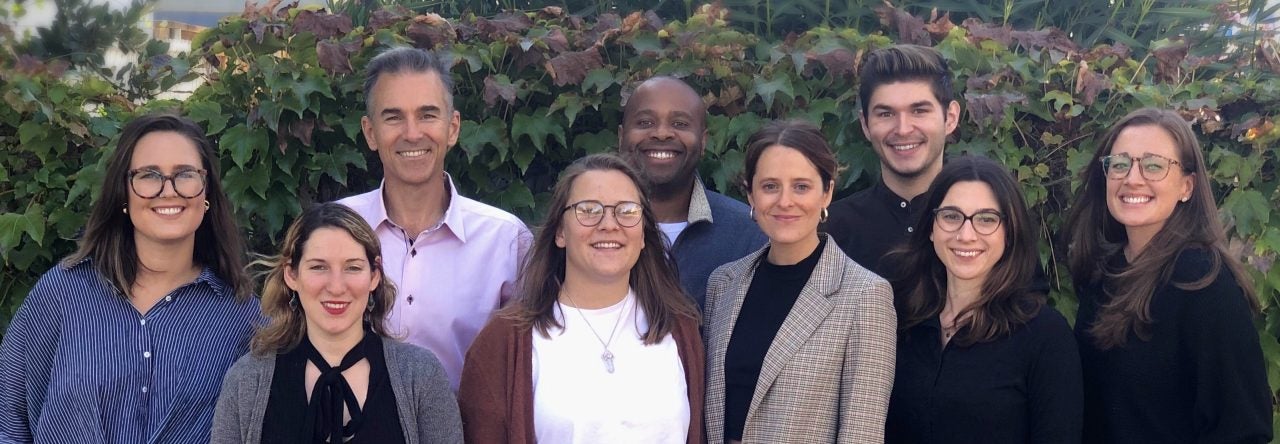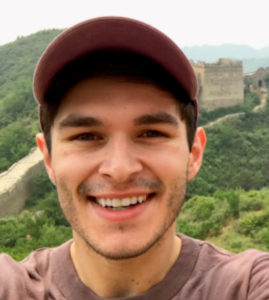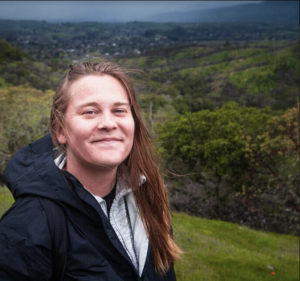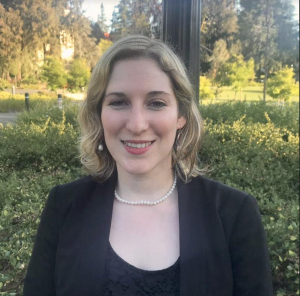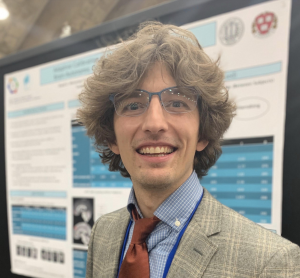GRADUATE STUDENTS
Ryan Hodge
Email: rthodge@ucdavis.edu
Ryan Hodge received his Ph.D. in Human Development in 2024 researching positive youth development applications of adolescent socio-emotional and neurobiological development. Overall, his research aims to assess individual difference characteristics that may contribute to adaptive functioning and positive developmental trajectories. His research projects are aimed at exploring adolescent autonomic and neural functioning as predictors of prosocial and empathic behavior development. In his free time, he enjoys traveling, hiking, learning languages, and cooking new recipes.
Elisa Ugarte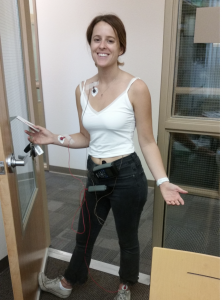
UC Berkeley
Elisa Ugarte received her Ph.D. in Human Development in 2023. She is broadly interested in how unpredictability shapes children’s and youth’s physiology and mental health. In particular, how unpredictability at different time scales, such as war displacement or fluctuations in day-to-day maternal mood, relates to neurobiology and psychopathology. Before coming to UC Davis, she worked as an elementary school teacher with underserved children and families in Santiago, Chile. This experience inspired me to learn how stressors get under the skin with the purpose of promoting social, health, and educational justice for Chilean children and youth’s biobehavioral development.
Lisa Johnson
B.A. Psychology, Temple University
Email: lisjohnson@ucdavis.edu
Lisa Johnson received her Ph.D. in Psychology in 2023. During her time in the HERD Lab, she studied positive youth development within the context of early adversity. She is especially interested in the interaction of environmental and physiological mechanisms underlying trajectories of adolescent adaptive functioning (e.g., self-regulation, coping, peer competence).
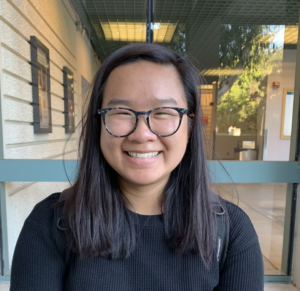 Enya Daang
Enya Daang
Enya Daang was the junior specialist and lab coordinator for the HERD Lab from 2020-2023. Prior to joining the lab, she was involved in the Emotion and Emotion Regulation Lab and the Center for the Built Environment at UC Berkeley. She is broadly interested in emotion beliefs and they interact with our emotion regulation and physiology. She is currently a graduate student in the Health Psychology program at UCLA.
Lauren Gonzalves
Lauren Gonzalves received her PhD in 2022. Before coming to UC Davis, she worked as a clinical social worker with children and families with extensive trauma histories. This experience guided her current research interests in the influence of early life adversity and parent-child relationships on the development of psychopathology. She is especially interested in the intersection of environmental and physiological risk factors for adolescent suicidality.
Meital Mashash
Meital Mashash received her PhD in the Human Development in 2021, researching the impact of early life adversity on physiology and health. Her research focuses on the long-term effects of childhood adversity on inflammation, depression and obesity. She is interested in further studying the psychosocial and neurobiological mechanisms underlying maladaptive development, and she aims to explore resilience factors (e.g., genetics, parenting, attachment) that may buffer individuals from the negative consequences of early life adversity.
Luis Armando Parra
Luis Armando Parra (pronouns: he/him/his) received his PhD in Human Development in 2019. His research applies an intersectionality lens to further understand the lived experiences of adolescents and emerging adults who belong to multiple marginalized social groups. In particular, Luis studies the effects of heterosexist and racist discrimination, as sources of stress, on neurobiological and immune system regulation and psychosocial adjustment. Currently, Luis is a Provost’s Postdoctoral Scholar for Faculty Diversity at the University of Southern California training at the Center for LGBTQ Health Equity.
David Weissman
I am a developmental and affective neuroscientist, currently a postdoctoral scholar in the Stress and Development Lab at Harvard University. I graduated from the psychology program at UC Davis in 2018 with a focus on developmental psychology. My research focuses on emotion processes and their underlying neural mechanisms that link childhood adversity and adolescent mental health. While in the HERD lab, I used fMRI and measures of autonomic physiology to examine these processes in Mexican-origin youth from the California Families Project.
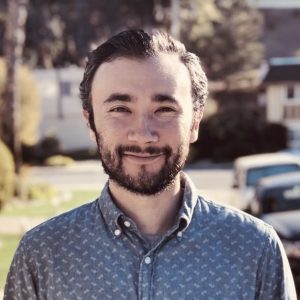 Jonas Miller
Jonas Miller
Jonas Miller received his PhD in Developmental Psychology in 2017. He is interested in the developmental science of how neurobiological processes embedded in relationships and environments relate to risk, resilience, and thriving. As a graduate student in the HERD Lab, his work focused on biopsychosocial models of prosocial development. Jonas is currently a postdoctoral scholar at Stanford University in the Department of Psychiatry and Behavioral Sciences, where he is exploring the effects of prenatal environments, early life stress, and environmental toxins on neurobiology and risk for psychopathology in childhood and adolescence.
 Sarah Kahle
Sarah Kahle
Sarah Kahle received her Ph.D. in Developmental Psychology in 2017 and her M.Ed. in Mind, Brain, and Education in 2006. In the HERD Lab, her work focused on children’s developing self-regulation and how components like biology, emotions, and parenting interact over time to influence well-being. Sarah is currently a postdoctoral fellow at UC Davis Medical Center working in labs at the MIND Institute and the CAARE Diagnostic and Treatment Center. Her current work aims to translate our understanding of self-regulation in development in order to develop effective interventions for childhood psychopathology and predict changes in symptom trajectories.
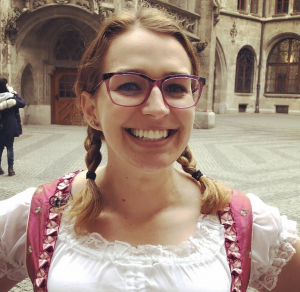 Natalie Troxel
Natalie Troxel
Natalie Troxel received her PhD in Developmental Psychology in 2017. Her work in the HERD lab focused on young children’s healthy emotional developmental within the context of parent-child and peer relationships, and the long-term sociobiological effects of growing up with poverty. After completing a postdoctoral fellowship in Health Psychology at UC Merced, studying how adolescents and young adults use social resources to manage diabetes, she left academia and is now working as a researcher in the tech industry. Her work now focuses on human-computer interaction, the well-being of social media users, and international/cross-cultural research.
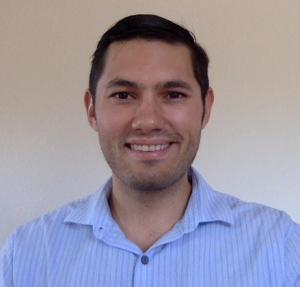 Jonathan Helm
Jonathan Helm
Jon graduated from the Quantitative Psychology program in 2013. He worked on developing and implementing different statistical models for measuring and modeling physiological synchrony. Jon is currently an Assistant Professor of Quantitative Psychology at San Diego State University where he works on statistical models for multivariate and intensive longitudinal data, as well as models for measurement of psychological constructs.
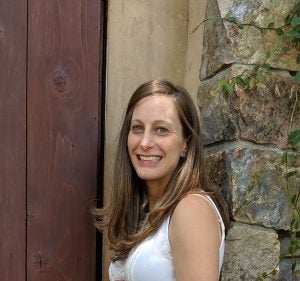 Jessica Grady
Jessica Grady
Jessica joined the HERD lab in 2011 after finishing her doctoral studies at West Virginia University. Her work considers temperament and emotion socialization. At UC Davis she collaborated on projects that examined parent emotion talk in relation to child inhibitory control and child shyness in varied contexts. Jessica is currently Associate Professor of Psychology at the University of the Pacific. In her research she studies factors that may help temperamentally shy toddlers to regulate their fear and engage with others.
RESEARCH ASSISTANTS
Ritika Gupta
Kristen Li
Lauren Saal-Dalma
Maria Paula Loc
Preetha Vellayapan
Savannah Hill
Tatum Brown
Nathaniel Spilkin
Cliff Huang
Shaakhini Satchi
Tiffany Chen
Nicole Camacho
